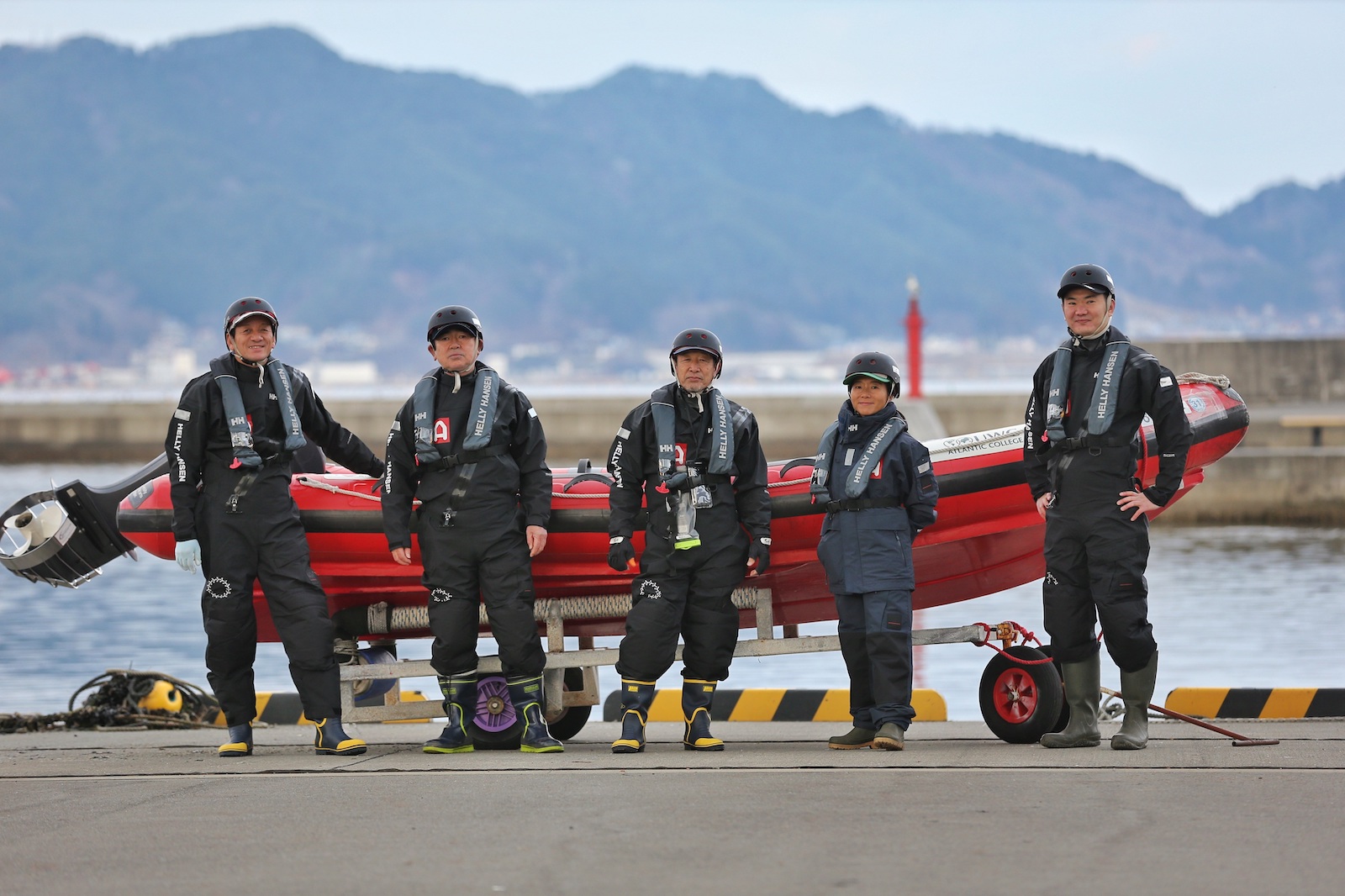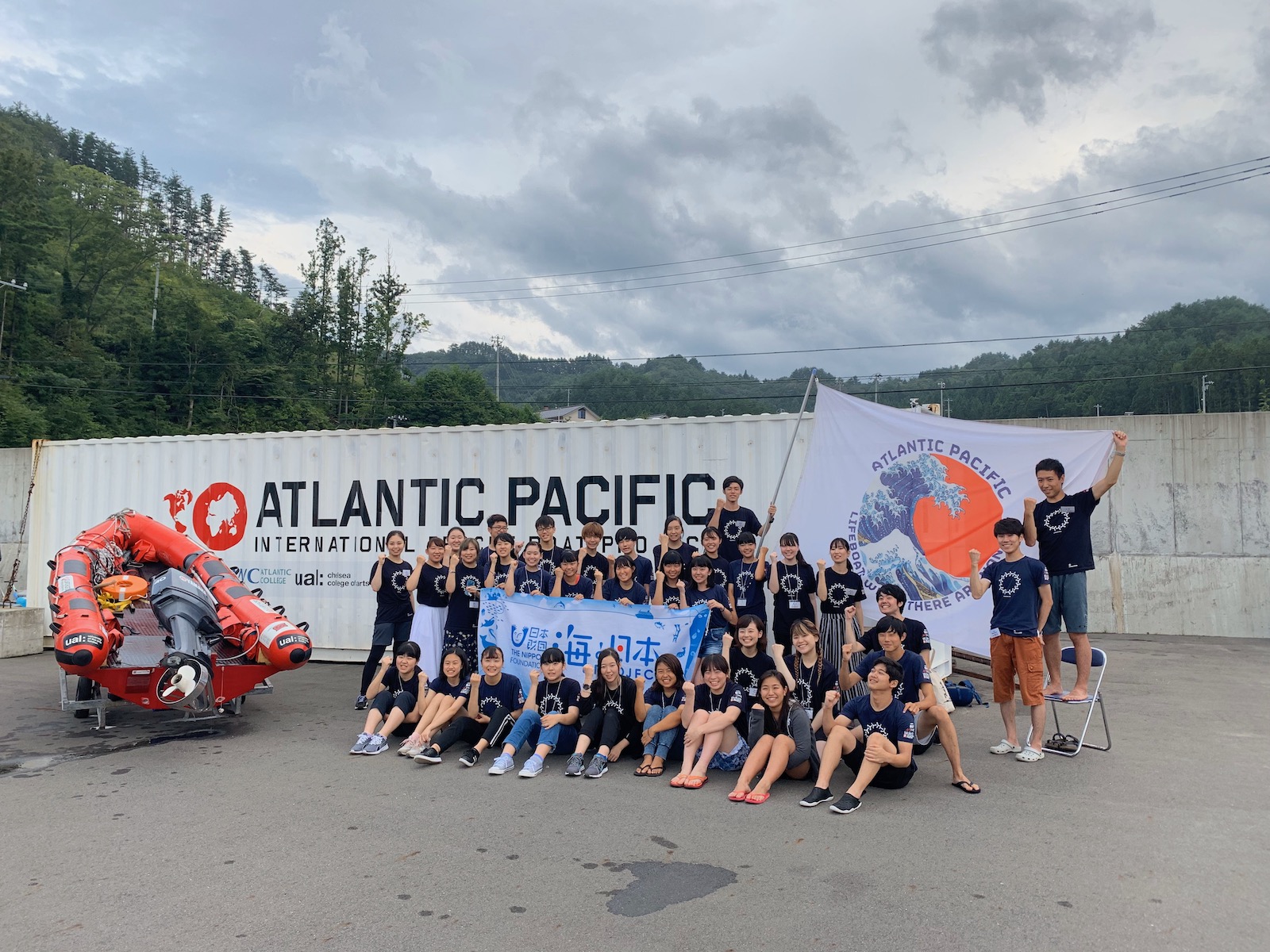Young people across Japan joined forces in March to combat plastic in the world’s oceans with Japanese non-profit lifeboat organization Atlantic Pacific.
Funded by The Nippon Foundation and part of the Umi-to-Nippon Project (The Ocean and Japan Project), the international program encompasses a Spring Camp for junior and senior high school students and an Ocean Revival Competition for under 25-year-olds. Participants have been generating ideas on how to reduce and prevent marine pollution, in a bid to support a more sustainable future.
Kate Sedwell, co-founder of Atlantic Pacific International, tells us more.
What is Atlantic Pacific?
Atlantic Pacific is the brainchild of Robin Jenkins, a designer and volunteer with the Royal National Lifeboat Institute on the River Thames, England. He was inspired to set up the organization following a visit to Kamaishi, Iwate Prefecture, in 2014. He heard stories of people calling out for help from the ocean after having been swept away in the 3.11 tsunami, and learned that nothing could be done because there was no lifeboat service to rescue them.

What is the organization’s core work?
We work to reduce global drowning, which is the third largest cause of children’s death globally, by providing lifeboats where there are none and educating people about sea safety and ocean awareness. Our first project, in 2016, was providing a Lifeboat in a Box at Nebama Beach in Kamaishi, which involved online and in-person training on lifesaving and crewing a lifeboat.
Why is ocean plastic important to Atlantic Pacific?
We have long been making community-wide relationships with the people of Kamaishi, and our work on ocean plastic is a natural extension of our educational outreach. Tackling the problem of marine plastic pollution is vital as it helps ensure the sustainable use and safe enjoyment of our oceans for generations now and in the future.
How is the educational outreach in Kamaishi progressing?
We have been working this year with students at UWC Atlantic in South Wales and Kamaishi High School on a pilot project that rethinks what we do with our waste plastic. The students have been sharing ideas on how to make new items from plastic bottle lids or old water bottles so that they have a second life and do not end up in the ocean. This month, this project will become part of the Kamaishi High School curriculum.
How important is it to engage young people in this work?
Young people are our future. Humans have been polluting the planet since the industrial revolution and, since the mass production and use of plastics in the 1950s, things are really pressing, with only a short window to save our environment as we know it. Young people will have to live with the impact of our decisions, and so we must empower them now to save the earth.
What did March’s youth activities involve?
The Spring Camp was originally designed to bring lots of young people to Kamaishi so they could experience the wonderful environment and nature that Nebama Bay has to offer. Unfortunately, COVID prevented us from gathering physically so students from around Japan attended an online program to develop their ideas around reducing plastic in our oceans.
The Ocean Revival Competition built on this work, but engaged with an international audience. The winner of the 17-years-and-under category was a Japanese student whose idea was a curry dish with rice shaped like a fish featuring tiny vegetables inside, to remind us about the danger of microplastics in the ocean and that, through eating fish, we are consuming microplastics, too. The 18–25-year-old category was won by two students, from Hong Kong and Afghanistan, who came up with using collected ocean plastics to create a lifesaving floating device.
What are Atlantic Pacific’s next steps?
We are preparing for our Summer Camp in Kamaishi, which we hope to run in early August, COVID permitting. This program is for 15–17-year-olds who are interested in making a difference to ocean pollution, including thinking of ways we can reduce our plastic consumption. There are sessions on safety in and around the ocean and an opportunity to ride on our lifesaving boat in Nebama Bay. Participants will meet lots of local, national and international young people.

What are your long-term goals to address ocean plastic?
We have just launched our Precious Plastic Project in Kamaishi, which sits alongside our Big Plastic Pledge. Its long-term goal is to educate people to stop using plastic. We need to use alternatives while collecting and repurposing the plastic already in our environment. It’s a big task, but we know that people in Japan are passionate about their environment and that we can make an impact in Kamaishi and beyond.
How can people get involved?
There are several ways. The first is to visit us in Kamaishi in summer to learn more about ocean awareness and sea safety or to contact us for online lessons that can be delivered in schools and universities in Japan. The second is to think of ways to reduce plastic use and pollution in our oceans; our next Ocean Revival Competition will open later in the year. The third is to reduce plastic consumption in your community, such as joining our Precious Plastic Project to take waste plastic and turn it into something useful. For details, please contact us in Japanese or English: apj@atlanticpacific.org.uk
© Japan Today















2 Comments
Login to comment
1glenn
On the subject of ..."generating ideas on how to reduce and prevent marine pollution.....", one should first identify the sources of marine pollution.
On the subject of plastics in the ocean, it seems that the world's major rivers are often used as cess pools, with the result that a lot of pollution goes straight into the ocean.
Another consideration is the overuse of artificial fertilizers by farmers. The excess fertilizer ends up in the ocean, helping to create large "dead zones" in the seas.
Then there is the problem of overfishing, which subject hardly needs explanation.
One can try to deal with the results of the causes of the problems, and one can try to go straight to the causes of the problems.
starpunk
Some of them like Monsanto and 245-T have been proven to be worse than the 'problem'.
It's a matter of ethics and to some, religion. God/Creator/Great Spirit/Jah/Allah/Ahura Mazda/many names created all the animals and plants for our food, medicines and industrial resources. They are not to be wasted or driven to extinction. It's all there for us - yesterday, today, tomorrow. Simple as that.